Discover Azeem Azhar's Exponential View
Azeem Azhar's Exponential View

Azeem Azhar's Exponential View
Author: Azeem Azhar
Subscribed: 4,189Played: 135,629Subscribe
Share
© Copyright 2024 EPIIPLUS1 Ltd
Description
How will the future unfold? What is the impact of AI and other exponential technologies on business & society? Join Azeem Azhar, founder of Exponential View, on his quest to demistify the era of exponential change.
220 Episodes
Reverse
Welcome to Exponential View, the show where I explore how exponential technologies such as AI are reshaping our future. I've been studying AI and exponential technologies at the frontier for over ten years.Each week, I share some of my analysis or speak with an expert guest to make light of a particular topic.To keep up with the Exponential transition, subscribe to this channel or to my newsletter: https://www.exponentialview.co/-----A week before OpenClaw exploded, I recorded a prescient conversation with Mustafa Suleyman, CEO of Microsoft AI and co-founder of DeepMind. We talked about what happens when AI starts to seem conscious – even if it isn’t. Today, you get to hear our conversation.Mustafa has been sounding the alarm about what he calls “seemingly conscious AI” and the risk of collective AI psychosis for a long time. We discussed this idea of the “fourth class of being” – neither human, tool, nor nature – that AI is becoming and all it brings with it.Skip to the best bits:(03:38) Why consciousness means the ability to suffer(06:52) "Your empathy circuits are being hacked"(07:23) Consciousness as the basis of rights(10:47) A fourth class of being(13:41) Why market forces push toward seemingly conscious AI(20:56) What AI should never be allowed to say(25:06) The proliferation problem with open-source chatbots(29:09) Why we need well-paid civil servants(30:17) Where should we draw the line with AI?(37:48) The counterintuitive case for going faster(42:00) The vibe coding dopamine hit(47:09) Social intelligence as the next AI frontier(48:50) The case for humanist super intelligence-----Where to find Mustafa:- X (Twitter): https://x.com/mustafasuleyman- LinkedIn: https://www.linkedin.com/in/mustafa-suleyman/- Personal Website: https://mustafa-suleyman.ai/Where to find me:- Substack: https://www.exponentialview.co/- Website: https://www.azeemazhar.com/- LinkedIn: https://www.linkedin.com/in/azhar- Twitter/X: https://x.com/azeemProduced by supermix.io and EPIIPLUS1 Ltd. Production and research: Chantal Smith and Marija Gavrilov. Hosted by Simplecast, an AdsWizz company. See pcm.adswizz.com for information about our collection and use of personal data for advertising.
Welcome to Exponential View, the show where I explore how exponential technologies such as AI are reshaping our future. I've been studying AI and exponential technologies at the frontier for over ten years.Each week, I share some of my analysis or speak with an expert guest to make light of a particular topic.To keep up with the Exponential transition, subscribe to this channel or to my newsletter: https://www.exponentialview.co/-----At Davos 2026, the mood was unlike any previous World Economic Forum gathering. With Donald Trump arriving amid escalating geopolitical tensions and European leaders sounding alarms about sovereignty, I recorded live dispatches from the ground. In this special episode, I bring together observations from four days at the annual meeting, tracking the seismic shifts in global order alongside the practical realities of AI adoption in the enterprise.Skip to the best bits:(00:38) Day one at Davos(02:10) Three recurring themes through the week(03:55) Day three at Davos(05:12) Mark Carney's stirring speech(05:52) Why European leaders are sounding the alarm(06:51) Why technological sovereignty just became urgent(09:31) Day four at Davos(12:59) What leaders really have to say on AI adoption(14:07) The case for only using open source modelsWhere to find me:Exponential View newsletter: https://www.exponentialview.co/Website: https://www.azeemazhar.com/LinkedIn: https://www.linkedin.com/in/azhar/Twitter/X: https://x.com/azeemProduction by supermix.io and EPIIPLUS1. Production and research: Chantal Smith and Marija Gavrilov. Hosted by Simplecast, an AdsWizz company. See pcm.adswizz.com for information about our collection and use of personal data for advertising.
Welcome to Exponential View, the show where I explore how exponential technologies such as AI are reshaping our future. I've been studying AI and exponential technologies at the frontier for over ten years.Each week, I share some of my analysis or speak with an expert guest to make light of a particular topic.To keep up with the Exponential transition, subscribe to this channel or to my newsletter: https://www.exponentialview.co/------In this episode, Peter McCrory, Head of Economics at Anthropic, unpacks the company's new Economic Index report. His team analysed millions of real Claude conversations to map exactly where AI is augmenting human work today and where it isn't. We explore the striking divergence between API and chat usage, why businesses need to extract tacit knowledge to unlock AI's potential, the "hollow ladder" risk for junior workers, and Anthropic's estimate that AI could add 1.0-1.8% to annual productivity growth over the next decade.Skip to the best parts:(00:00) Anthropic's Economic Index report(01:20) Claude's two distinct usage patterns(06:22) Examining AI's impact on the labor market(09:20) Where most businesses think too small(12:03) Why extracting tacit knowledge is so important(20:33) How do we create the next generation of experts?(23:22) Why people need to develop cognitive endurance(29:55) Long-term vs. short-term productivity(35:56) The future of human knowledge(37:46) Could AI's greatest impact go unmeasured?(41:55) How task bottlenecks have moved(46:09) Implementation resembles a staircase - not a curve(50:47) "Capability doesn't instantly deliver adoption"------Where to find me:Exponential View newsletter: https://www.exponentialview.co/Website: https://www.azeemazhar.com/LinkedIn: https://www.linkedin.com/in/azhar/Twitter/X: https://x.com/azeemProduction by supermix.io and EPIIPLUS1. Production and research: Chantal Smith and Marija Gavrilov. Hosted by Simplecast, an AdsWizz company. See pcm.adswizz.com for information about our collection and use of personal data for advertising.
Welcome to Exponential View, the show where I explore how exponential technologies such as AI are reshaping our future. I've been studying AI and exponential technologies at the frontier for over ten years. Each week, I share some of my analysis or speak with an expert guest to make light of a particular topic. To keep up with the Exponential transition, subscribe to this channel or to my newsletter: https://www.exponentialview.co/ -------- In this episode, I share my outlook for 2026 and explain why AI tools now feel genuinely different. I explore how the act of making has been transformed, why authenticity and meaning will become the new scarcity, and whether the foundations of energy and capital can hold. I also address the question I was asked most in 2025: when will the AI bubble burst? Skip to the best bits: 00:00 Why AI feels different in 2026 01:59 The six shifts in AI 03:32 The "done list" era 06:43 From execution to orchestration 09:02 The agentic coding revolution 11:10 What's a Chief Question Officer? 13:58 Three ways value will be created 16:27 "Claude told me to use ChatGPT" 18:02 The AI usage gap 20:30 The new moat in 2026 26:10 How does solar growth affect AI? 28:53 Revisiting the bubble or boom question ------ Where to find me: Exponential View newsletter: https://www.exponentialview.co/ Website: https://www.azeemazhar.com/ LinkedIn: https://www.linkedin.com/in/azhar/ Twitter/X: https://x.com/azeem Production by supermix.io and EPIIPLUS1 Production and research: Chantal Smith and Marija Gavrilov. Hosted by Simplecast, an AdsWizz company. See pcm.adswizz.com for information about our collection and use of personal data for advertising.
Welcome to Exponential View, the show where I explore how exponential technologies such as AI are reshaping our future. I've been studying AI and exponential technologies at the frontier for over ten years. Each week, I share some of my analysis or speak with an expert guest to make light of a particular topic. To keep up with the Exponential transition, subscribe to this channel or to my newsletter: https://www.exponentialview.co/ ------ In this episode, Nobel Prize-winning economist Paul Krugman and I discuss how a strong US economy, high asset valuations, and rapid AI adoption are sitting in uneasy tension. We explore what past technology cycles can teach us, why safety nets struggle to address disruption, and where genuine optimism still makes sense. This is a January 2025 rerun, which remains strikingly relevant today. We covered: (01:09) State of the US economy (02:28) "That end of 1999 feeling" (05:08) Insights and lessons from the dotcom bubble (09:57) Why today's market is different (13:44) Understanding AI's role in labor displacement (16:05) Are LLMs "souped-up autocorrect"? (20:14) How job displacement erodes communities (23:40) 2025's looming threat of tariffs (26:16) AI's surprising impact on globalization (30:15) Can markets address inequality? (33:06) The maximum level of sustainable national debt (36:31) When should the Fed raise interest rates? (38:57) The need to revitalize local economies (44:53) Did Paul's 2025 predictions come true? ------ Where to find me: Exponential View newsletter: https://www.exponentialview.co/ Website: https://www.azeemazhar.com/ LinkedIn: https://www.linkedin.com/in/azhar/ Twitter/X: https://x.com/azeem Production by supermix.io and EPIIPLUS1 Production and research: Chantal Smith and Marija Gavrilov. Hosted by Simplecast, an AdsWizz company. See pcm.adswizz.com for information about our collection and use of personal data for advertising.
Welcome to Exponential View, the show where I explore how exponential technologies such as AI are reshaping our future. I've been studying AI and exponential technologies at the frontier for over ten years. Each week, I share some of my analysis or speak with an expert guest to make light of a particular topic. To keep up with the Exponential transition, subscribe to this channel or to my newsletter: https://www.exponentialview.co/ --- What made 2025 special? In this episode, I reflect on the past year and what it revealed: a K-shaped divide. On one track, AI models are now doing hours of high quality work, improving at exponential pace, and shifting how we work from doing to judging. On the other, organisations and the broader economy are struggling to keep up. Stay to the end for my seasonal film recommendation. I cover:(00:00) Intro (00:45) The state of tool usage in 2025 (6:10) The gap between AI progress and organizational adoption (9:53) AI’s shockingly rapid revenue growth (11:17) The biggest mistake smart people make with AI (14:14) The inescapable need for physical infrastructure (16:06) What everyone was asking in 2025 (18:08) The new winners of the AI economy (20:48) Why “K” is the letter of 2025 (24:08) Seasonal movie recommendation ---- Where to find me: Exponential View newsletter: https://www.exponentialview.co/ Website: https://www.azeemazhar.com/ LinkedIn: https://www.linkedin.com/in/azhar/ Twitter/X: https://x.com/azeem Production by supermix.io and EPIIPLUS1 Production and research: Chantal Smith and Marija Gavrilov. Hosted by Simplecast, an AdsWizz company. See pcm.adswizz.com for information about our collection and use of personal data for advertising.
Welcome to Exponential View, the show where I explore how exponential technologies such as AI are reshaping our future. I've been studying AI and exponential technologies at the frontier for over ten years. Each week, I share some of my analysis or speak with an expert guest to make light of a particular topic. To keep up with the Exponential transition, subscribe to this channel or to my newsletter: https://www.exponentialview.co/ --- In this episode, I’ve distilled a year of extraordinary dialogue into one 20-minute briefing. I’ve spent 2025 in conversation with the architects of our future - the builders and thinkers redefining AI, energy, and the global economy.These are the "eureka" moments from my most exclusive interviews. From the future of "protopia" with Kevin Kelly to the hidden tech gaps with Dan Wang, this is your strategic roadmap for the exponential age.What you'll hear about:Part 1: AI as a general purpose techKevin Weil: The heuristic for startupsMatthew Prince: The “Socialist” pricing debateTyler Cowen: This will stifle the AI boomNick Thompson: The "NBA-ification" of JournalismKevin Kelly: From utopia to protopiaKevin Kelly: Technology as a "possibility factory”Part 2: How work is changingSteve Hsu: The future of educationThomas Dohmke: The inspectability turning pointBen Zweig: The new role for entry-level workersBen Zweig: Why are there so many hiring freezes?Ben Zweig: The eroding signal of higher educationPart 3: The physical world, compute, and energyGreg Jackson: The "crossing the road" metaphorGreg Jackson: Building a “show don’t tell” companyDan Wang, The "physical reality" of AIPart 4: The changing US China landscapeDan Wang: The West’s hidden tech gapJordan Schneider: The two types of accelerationismJordan Schneider: Why the US can learn from ChinaWhere to find me: Exponential View newsletter: https://www.exponentialview.co/ Website: https://www.azeemazhar.com/ LinkedIn: https://www.linkedin.com/in/azhar/Twitter/X: https://x.com/azeem Production by supermix.io and EPIIPLUS1 Production and research: Chantal Smith, Marija Gavrilov and Hannah Petrovic Hosted by Simplecast, an AdsWizz company. See pcm.adswizz.com for information about our collection and use of personal data for advertising.
Welcome to Exponential View, the show where I explore how exponential technologies such as AI are reshaping our future. I've been studying AI and exponential technologies at the frontier for over ten years. Each week, I share some of my analysis or speak with an expert guest to make light of a particular topic. To keep up with the Exponential transition, subscribe to this channel or to my newsletter: https://www.exponentialview.co/ --- In this episode, I look at the next 24 months of AI. The technology is improving rapidly – so what could hold back widespread transformation of how we work and live? I dig into the real constraints, from electricity shortages to institutional inertia, why mid-2026 matters for enterprise AI, and why so many people remain uneasy about a technology they use every day. I cover: (00:03) Predicting AI's next two years (01:50) How life changing are chatbots, really? (03:36) Our current biggest AI constraint (07:58) The remarkable increase in token efficiency (10:43) Why mid-2026 is a crucial turning point (13:01) Do we actually want AI in our lives? (15:28) Should organizations wait to jump in? (16:39) How is OpenAI reckoning with Gemini? (18:41) The market's reaction to OpenAI's code red (19:32) Where will value accrue in the supply chain? (20:51) What's the best strategy for middling powers?Where to find me: Exponential View newsletter: https://www.exponentialview.co/ Website: https://www.azeemazhar.com/ LinkedIn: https://www.linkedin.com/in/azhar/Twitter/X: https://x.com/azeem Production by supermix.io and EPIIPLUS1 Production and research: Chantal Smith and Marija Gavrilov. Hosted by Simplecast, an AdsWizz company. See pcm.adswizz.com for information about our collection and use of personal data for advertising.
Welcome to Exponential View, the show where I explore how exponential technologies such as AI are reshaping our future. I've been studying AI and exponential technologies at the frontier for over ten years. Each week, I share some of my analysis or speak with an expert guest to make light of a particular topic. To keep up with the Exponential transition, subscribe to this podcast or to my newsletter: https://www.exponentialview.co/ --- In this episode, I reflect on the third anniversary of ChatGPT's launch as a marker of where we are in the exponential age. As a product, ChatGPT captures the speed of technological progress, the new behaviours emerging around it and the widening gap between innovation and institutional change – all symptomatic of the era I called the exponential age in my 2021 book. I cover: (00:09) How ChatGPT became synonymous with AI (01:41) The rise of the reasoning model (03:53) Why NVIDIA's chip cycle is exponential (05:53) How general-purpose tech changes everything (07:59) The subtle power of building bespoke software (11:46) The iPhone calculation that breaks everything (14:53) Who profits from a general-purpose technology? (16:38) The software market example (20:07) Are we headed towards another .com crash? Where to find me: Exponential View newsletter: https://www.exponentialview.co/ Website: https://www.azeemazhar.com/ LinkedIn: /azhar Twitter/X: https://x.com/azeem Production by supermix.io and EPIIPLUS1 Production and research: Chantal Smith and Marija Gavrilov. Hosted by Simplecast, an AdsWizz company. See pcm.adswizz.com for information about our collection and use of personal data for advertising.
The AI industry is sending mixed signals, with markets turning red while teams report real productivity gains. In this session I explore why we are living in a split reality, where individuals move faster with these tools but the wider economy is ambivalent. We once assumed juniors would get the biggest lift from AI, yet the newer agentic tools seem to reward senior workers who know how to structure problems and judge output. In this podcast, I look at the evidence behind that shift and explain how these gains collide with the slow grind of organisational processes. I cover: (00:00) AI productivity: A split reality (00:31) Decoding the stock market drop (02:53) Unpacking three years of AI productivity data (06:09) Does AI help junior or senior developers more? (09:54) The surprising group benefitting from AI (11:45) Why is there a productivity gap? (13:08) Most companies need a process overhaul (14:33) Anthropic's alarming discovery (16:45) So, are we moving quickly enough? (17:29) The counterintuitive truth about AI productivity Where to find me:- Exponential View newsletter: https://www.exponentialview.co/ - Website: https://www.azeemazhar.com/ - - LinkedIn: https://www.linkedin.com/in/azhar - Twitter/X: https://x.com/azeem Production by supermix.io and EPIIPLUS1 Production and research: Chantal Smith, Hannah Petrovic and Marija Gavrilov. Hosted by Simplecast, an AdsWizz company. See pcm.adswizz.com for information about our collection and use of personal data for advertising.
Junior roles in AI-exposed fields are disappearing fast. The obvious culprit is AI rapidly automating entry-level jobs. And yet, this isn't quite right. What is driving the drop is managers’ expectations about what AI will do, not the work that it's already replacing. I discussed this with Ben Zweig of Revelio Labs, which builds global workforce data from millions of individual profiles to track hiring, separations and job flows. Their data shows how expectation and uncertainty are reshaping the market.Together, we explored the future of work and shared practical advice for new grads. We covered: (01:15) What's happening in the labor market? (05:27) The inherent complexity of the labor market (06:24) How Revelio Labs captures labor market data (08:39) "The Canary in the Coal Mine" (11:52) Who does AI exposure harm the most? (13:01) How AI anticipation is harming the job market (15:15) Testing the expectation mismatch hypothesis (17:30) Could AI be creating more jobs? (20:44) Breaking down jobs into smaller tasks (27:33) Why large companies struggle to reorganize (30:35) Focus on creating adaptive, flexible roles (36:03) Managing AI's increasing capability (39:11) What entry-level workers need to do Where to find me: - Exponential View newsletter: https://www.exponentialview.co/ - Website: https://www.azeemazhar.com/ - LinkedIn: https://www.linkedin.com/in/azhar - Twitter/X: https://x.com/azeem Where to find Ben: - https://www.linkedin.com/in/ben-zweig/ - Twitter/X: https://x.com/BJZweig - Revelio Labs: https://www.reveliolabs.com/ Production by supermix.io and EPIIPLUS1 Production and research: Chantal Smith, Hannah Petrovic and Marija Gavrilov. Hosted by Simplecast, an AdsWizz company. See pcm.adswizz.com for information about our collection and use of personal data for advertising.
The AI boom isn’t just about chatbots.In this video, I explain why cloud companies and chipmakers are exploding in value: we’re moving into an economy where computation becomes a fundamental input – like steel, electricity or oil.If that’s true, our demand for compute could approach infinity.I also break down new data from Wharton’s 2025 AI Adoption Report, which shows how AI agents and automated workflows are already spreading through major U.S. companies: https://knowledge.wharton.upenn.edu/special-report/2025-ai-adoption-report/Timestamps:(00:00) The economic shift to computation (00:40) The surprising Cloud business boom (02:52) Is the hardware industry growth a bubble? (03:18) What is computing, really? (04:31) Our insatiable appetite for computing (09:15) Our economic dependence on computation (10:54) The rise of agentic workforces (13:05) What does infinite demand actually mean? (15:23) The future of compute demandWhere to find me:Exponential View newsletter: https://www.exponentialview.co/Website: https://www.azeemazhar.com/LinkedIn: https://www.linkedin.com/in/azharTwitter/X: https://x.com/azeemProduction by supermix.io and EPIIPLUS1Production and research: Chantal Smith, Hannah Petrovic and Marija Gavrilov. Hosted by Simplecast, an AdsWizz company. See pcm.adswizz.com for information about our collection and use of personal data for advertising.
In this episode, I speak with Jordan Schneider, creator of Chinatalk, to explore the new phase of US–China competition. Both countries are using trade policy, export controls and industrial strategy to shift the balance of global power. Yet, their economies remain tightly bound. We cover: (01:34) The US and China’s decoupling (07:28) Why attempts to control China backfired (08:51) Understanding the Oct. 9th rare Earth rules (11:27) The modern iteration of Chinese communism (14:23) Is decoupling a strategy to avoid weaponization? (16:12) US leadership might be shooting from the hip (19:22) Are system changes inherently messy? (21:27) “Vibe-based” sovereignty (26:03) AI incumbents aren’t entrenched—yet (29:07) Why China remains focused on AI deployment (32:45) The different versions of tech-accelerationism (33:37) How will societies withstand rapid change? (36:54) What the West can learn from China (40:10) Where China is most misunderstood (43:14) Imagining an improved US-China relationship Where to find Jordan:Substack: https://substack.com/@chinatalkYouTube: @ChinaTalkMediaLinkedin: / jorschneiderX: https://x.com/jordanschnycWhere to find me:Substack: https://www.exponentialview.co/Website: https://www.azeemazhar.com/LinkedIn:/ azharX: https://x.com/azeemProduced by EPIIPLUS1 Ltd and supermix.io Production and research: Chantal Smith, Hannah Petrovic and Marija Gavrilov. Hosted by Simplecast, an AdsWizz company. See pcm.adswizz.com for information about our collection and use of personal data for advertising.
Azeem Azhar sat down with Matthew Prince, co-founder & CEO of Cloudflare. Matthew is a rare operator with the vantage point to answer a simple question: if agents do the reading, who gets paid? This conversation is a practical map of how AI “answer engines” upend the web’s traffic-funded model – and what could replace it.Chapters: (00:46) The currency of the web is dying (06:08) Google's inflection point (10:08) Why a broken business model might save the internet (14:44) The incentivization of ragebait (20:38) Content scarcity as a solution (24:35) What could a new content business model look like? (28:51) The challenge of pricing information (29:31) How Cloudflare thinks about the creator economy (32:06) Should smaller companies pay less? (34:24) Can markets solve this without Congress? (39:11) How does the agentic web affect content? (43:40) A rare chance to redesign the internet Produced by EPIIPLUS1 Ltd and supermix.io Production and research: Chantal Smith, Hannah Petrovic, Nathan Warren and Marija Gavrilov. Hosted by Simplecast, an AdsWizz company. See pcm.adswizz.com for information about our collection and use of personal data for advertising.
In this episode, I spoke with Dan Wang, author of “Breakneck: China’s Quest to Engineer the Future”, shortlisted for the FT & Schroders Business Book of the Year.Dan is one of the most astute observers of China’s technological and industrial development, and his annual letters from Beijing have long been required reading for those seeking to understand the country’s evolving role in the world.We unpacked a bold thesis: China is not merely a competitor in AI and tech, but is re-imagining its entire state apparatus as an engineering state - in contrast to the more “lawyerly” institutions of the US and UK.If you’re interested in AI, energy or geopolitics, this conversation is for you.We covered: (00:47) Why China is an engineering state(03:40) China’s pro-engineering disposition(06:08) The role of market competition in China(08:07) Living through Zero COVID(11:35) What political science terms get wrong(12:58) Characteristics of a lawyerly society(15:23) What Americans misunderstand about China(21:54) Has China produced essential tech?(23:50) The AI divide: China vs. US(27:45) Differences in energy production(32:07) The inherent value of process knowledge(38:34) Is the US developing pro-engineering policies?(44:23) What does it take for countries to compete?Where to find me:Substack: https://www.exponentialview.co/Website: https://www.azeemazhar.com/LinkedIn: https://www.linkedin.com/in/azharTwitter/X: https://x.com/azeemWhere to find Dan:Website: https://danwang.co/LinkedIn: https://www.linkedin.com/in/danwang15/Twitter/X: https://x.com/danwwangProduction by supermix.io and EPIIPLUS1 Ltd, including Chantal Smith, Marija Gavrilov, Nathan Warren and Hannah Petrovic. Hosted by Simplecast, an AdsWizz company. See pcm.adswizz.com for information about our collection and use of personal data for advertising.
Is AI a bubble? In this episode, I unpack a new five-gauge framework for understanding the biggest question in tech. Drawing on lessons from past manias – railways, telecoms, the dot-com boom – and grounding our analysis in fresh data, we examine economic strain, revenue growth, valuations, and the quality of capital fueling AI’s ascent. This is our effort to cut through hype and fatalism to provide a clear dashboard: where today’s AI build-out looks like a genuine boom, and where early warning signs of bubble dynamics may be emerging. Whether you’re an investor, policymaker, or executive, this framework offers a disciplined way to navigate the noise.Jump to the best parts:(00:29) Echoes of the past (01:31) The 5 gauge framework (01:54) Gauge #1: Investment intensity(03:45) Gauge #2: Monetization level (04:48) Gauge #3: Revenue trajectory (06:23) Gauge #4: Valuation level(07:24) Gauge #5: Quality of capital (10:10) Overall assessmentProduced by EPIIPLUS1 and Supermix. Thanks to my team: Nathan Warren, Hannah Petrovic, Chantal Smith & Marija Gavrilov Hosted by Simplecast, an AdsWizz company. See pcm.adswizz.com for information about our collection and use of personal data for advertising.
GPT-5 was the most advanced AI when it was released, but most people were disappointed. Why? In this episode, I unpack the two key paradoxes that shape how we judge new technology: shifting goalposts and negative space.Timestamps: (0:00) The reaction to GPT-5 (0:40) First paradox (2:55) Second paradox (5:29) Why this matters Dig deeper: https://www.exponentialview.co/p/the-paradox-of-gpt-5 Production by supermix.io and EPIIPLUS1 Ltd, including Chantal Smith, Marija Gavrilov, Nathan Warren and Hannah Petrovic. Hosted by Simplecast, an AdsWizz company. See pcm.adswizz.com for information about our collection and use of personal data for advertising.
Can AI stocks beat Big Tech? In this episode, I discuss OpenAI and its decision to expand a secondary share sale that lets insiders sell about $10.3 billion of stock at roughly a $500 billion valuation. Although skeptical at first, the calculations reveal there is a path for OpenAI to deliver outsized returns.I cover:(0:00) The $500B question (01:11) Why the Nasdaq Index is the benchmark (03:35) Inside the OpenAI-Microsoft deal (05:50) The bull case: OpenAI’s trillion-dollar path (09:33) The AI market explosion (12:39) The bear case: Competition and constraints (17:13) Exploring the models of tomorrow (20:58) The disruption premium (23:21) Where will OpenAI’s revenue come from? (29:14) The final verdict Hosted by Simplecast, an AdsWizz company. See pcm.adswizz.com for information about our collection and use of personal data for advertising.
This is the single most important paper to come out in tech in recent weeks. Erik Brynjolfsson, Bharat Chandar and Ruyu Chen investigated whether generative AI is leading to job losses in roles most exposed to AI – and how these effects differ by age and the way AI is used. In this episode, I break down these results and their implications. I covered: (01:17) Key finding (03:32) What’s going on here? (06:13) A canary in the coal mine? (8:21) The dataset studied and why it matters (10:34) The sectors impacted and why it matters (12:37) Why don't firms just reduce salaries? (14:34) Historical parallels with electricity (17:20) How leadership impacts job losses (20:46) Implications for policy, education, equity (24:53) Outro Where to find me: - Substack: https://www.exponentialview.co/ - Website: https://www.azeemazhar.com/ - LinkedIn: https://www.linkedin.com/in/azhar?originalSubdomain=uk - Twitter/X: https://x.com/azeem ----Production by supermix.io and EPIIPLUS1 Hosted by Simplecast, an AdsWizz company. See pcm.adswizz.com for information about our collection and use of personal data for advertising.
Nick Thompson, CEO of The Atlantic, led one of the first major content licensing deals with OpenAI in 2024. In this conversation, he joins Azeem to unpack how AI is transforming media – and what that means for every business navigating the shifting economics of attention, trust, and discovery. We cover: (01:49) Journalism’s four horsemen (5:33) The collapse of search (9:07) Cloudflare’s counterattack (13:56) Is this the search-traffic fix? (17:42) Rise of the sovereign creator (22:57) Do great writers need editors? (26:22) Why conservatives win new media (27:17) How Substack drives discovery (31:08) East Coast vs. West Coast ethics (35:11) How Nick uses AI in writing (42:13) Is AI friend or foe to journalism? (45:32) The Atlantic’s survival plan Nick's links: The Atlantic: https://www.theatlantic.com/LinkedIn: https://www.linkedin.com/in/nicholasxthompson/ Twitter/X: https://x.com/nxthompson Substack: https://nxthompson.substack.com Azeem's links: Substack: https://www.exponentialview.co/ Website: https://www.azeemazhar.com/ LinkedIn: https://www.linkedin.com/in/azhar Twitter/X: https://x.com/azeem ----Produced by supermix.io and EPIIPLUS1 Ltd Hosted by Simplecast, an AdsWizz company. See pcm.adswizz.com for information about our collection and use of personal data for advertising.







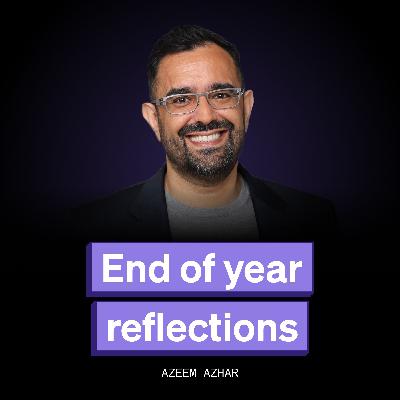
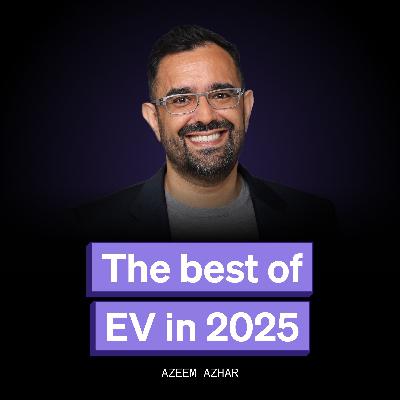
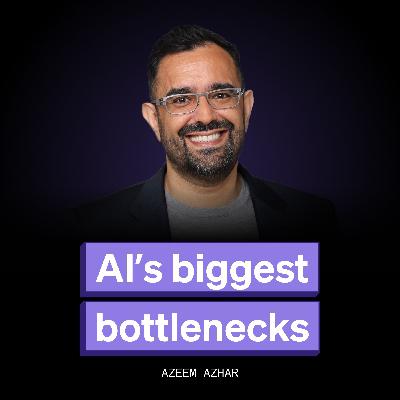
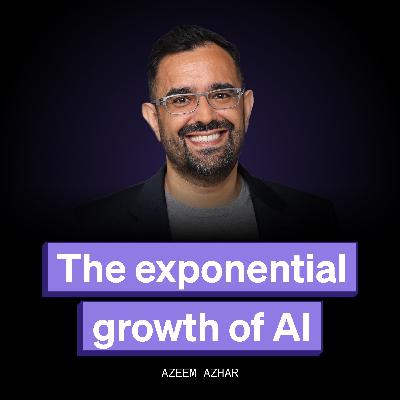
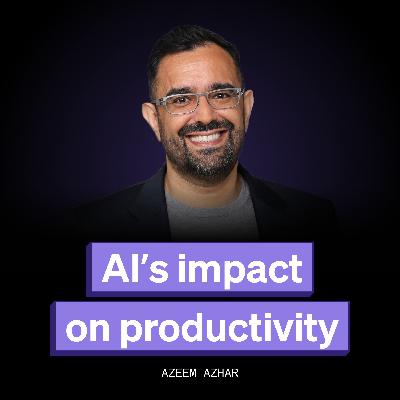
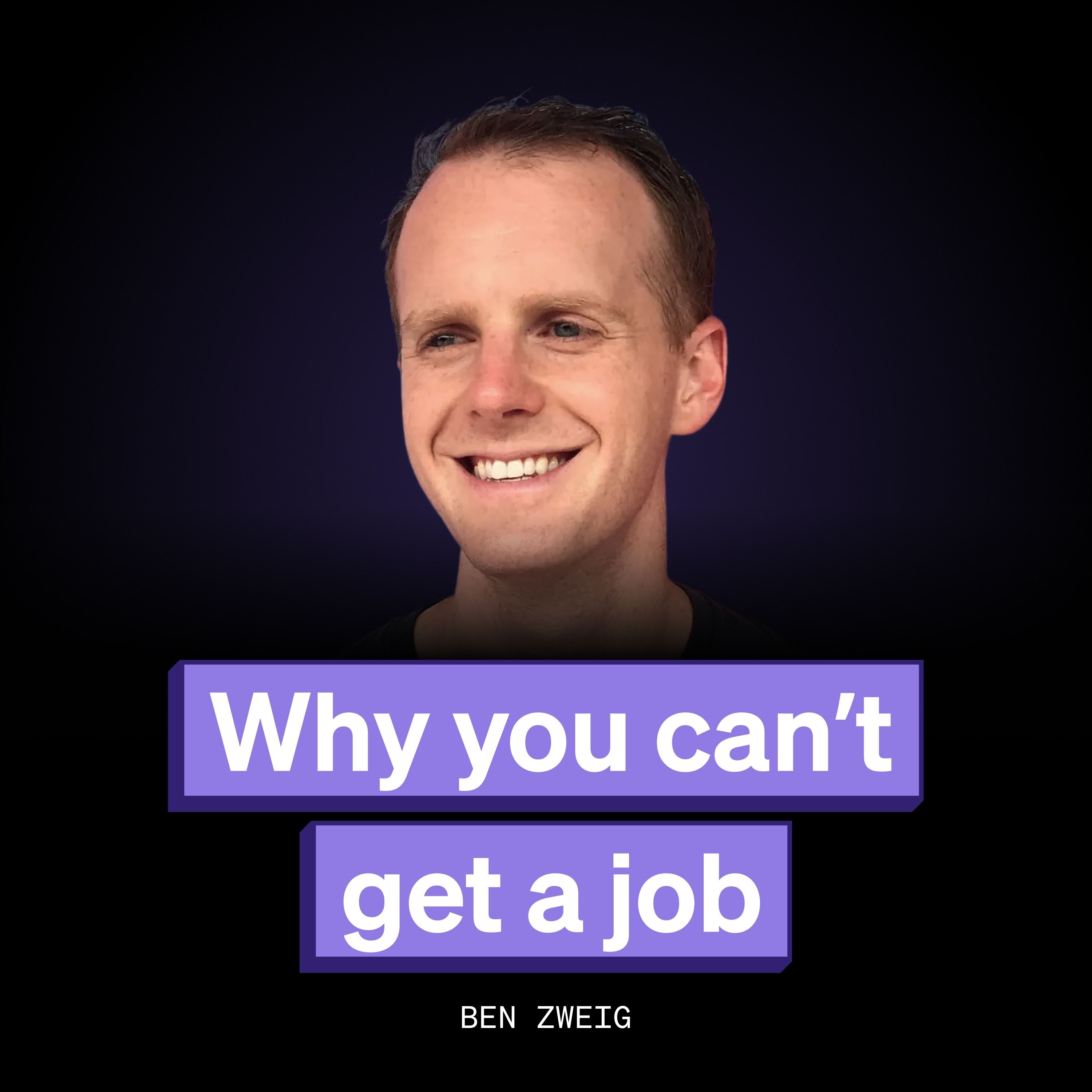
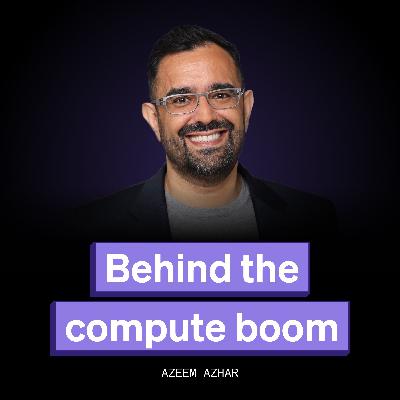

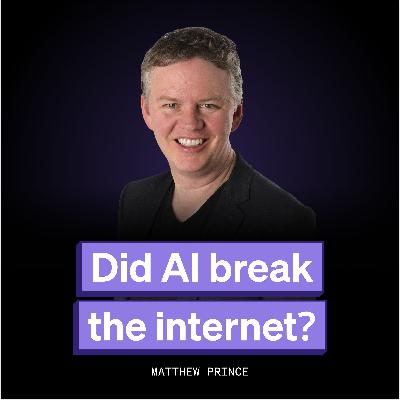
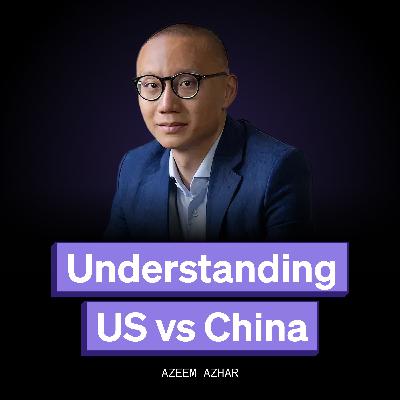
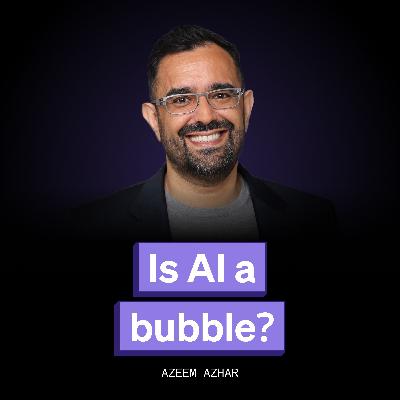
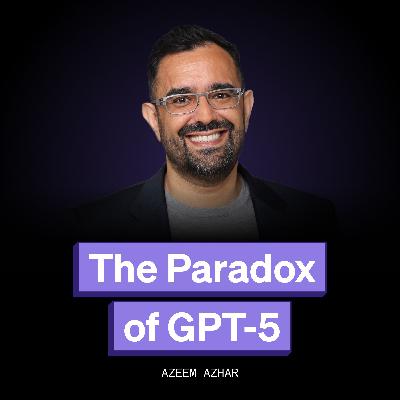
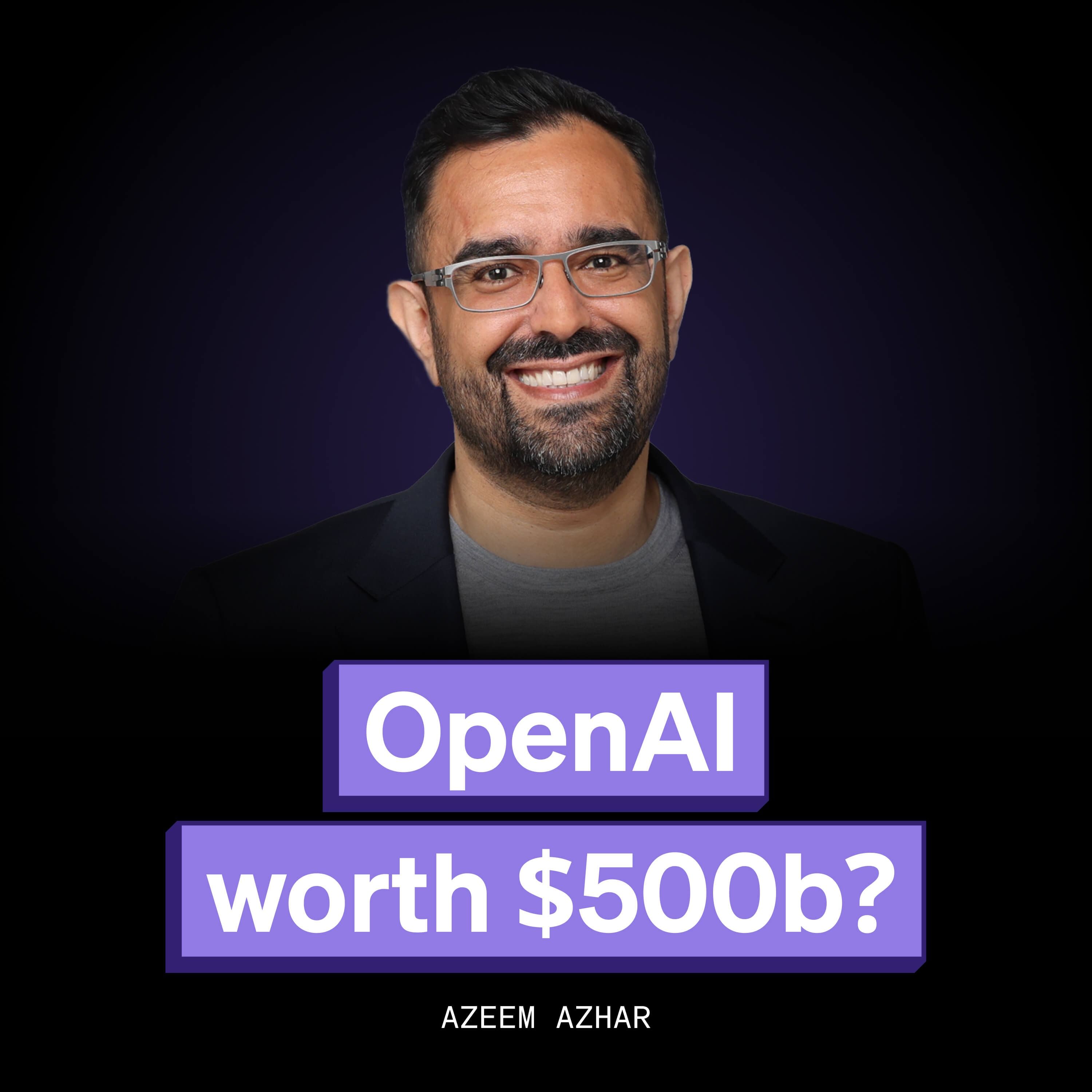
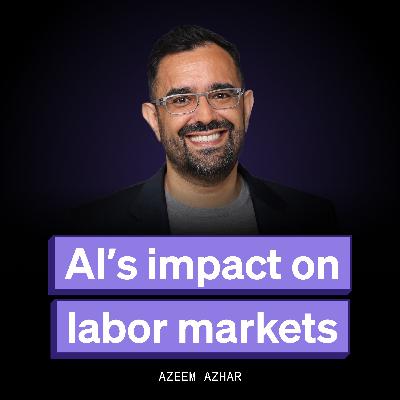
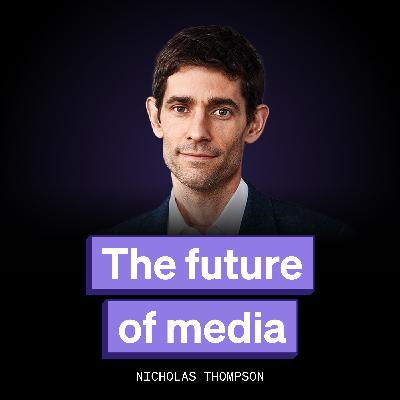



The transition to electric vehicles marks a pivotal moment in Ford's long history, challenging the traditional notions of car design and ownership. As Hau Thai-Tang and Azeem Azhar delve into the imminent EV revolution, the prospect of exponential uptake within the next five years prompts a necessary reimagining of the automotive industry, drawing parallels to the transformative models of companies like Netflix and Apple. I have read on https://royalprinceautocare.com/
Supply Chain digitization is the need of the hour. Thisbis a very timely podcast.
really excellent conversation
Excellent conversation!
Great podcast, just frustrating the guest being interrupted several times.
You cut the guest off a few times towards the end of the interview
Very interesting discussion but was very concerned at the implication of something Missy said re the B737max scandal. She said some carriers don't buy the same training packages for their pilots. The B737max is aerodynamically unstable, so a fundamentally flawed airframe. The MCAS and single AoA detector are flawed design and implementation problems. All compounded by Boeing not disclosing the MCAS even existed to carriers/pilots in the POH/training materials. This is criminal and raises the question, how can pilots trust a Boeing POH again in the future? This was not a choice by foreign carriers, but a decision imposed by Boeing to avoid the regulatory implications of disclosing the system. They applied the fail fast, fail often principle to try and catch up with Airbus and the failure cost lives.
an excellent uncomplicated interview and discussion regarding the future of health care and technology
great talk that drived me to think more consciously about the tech